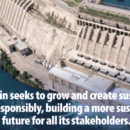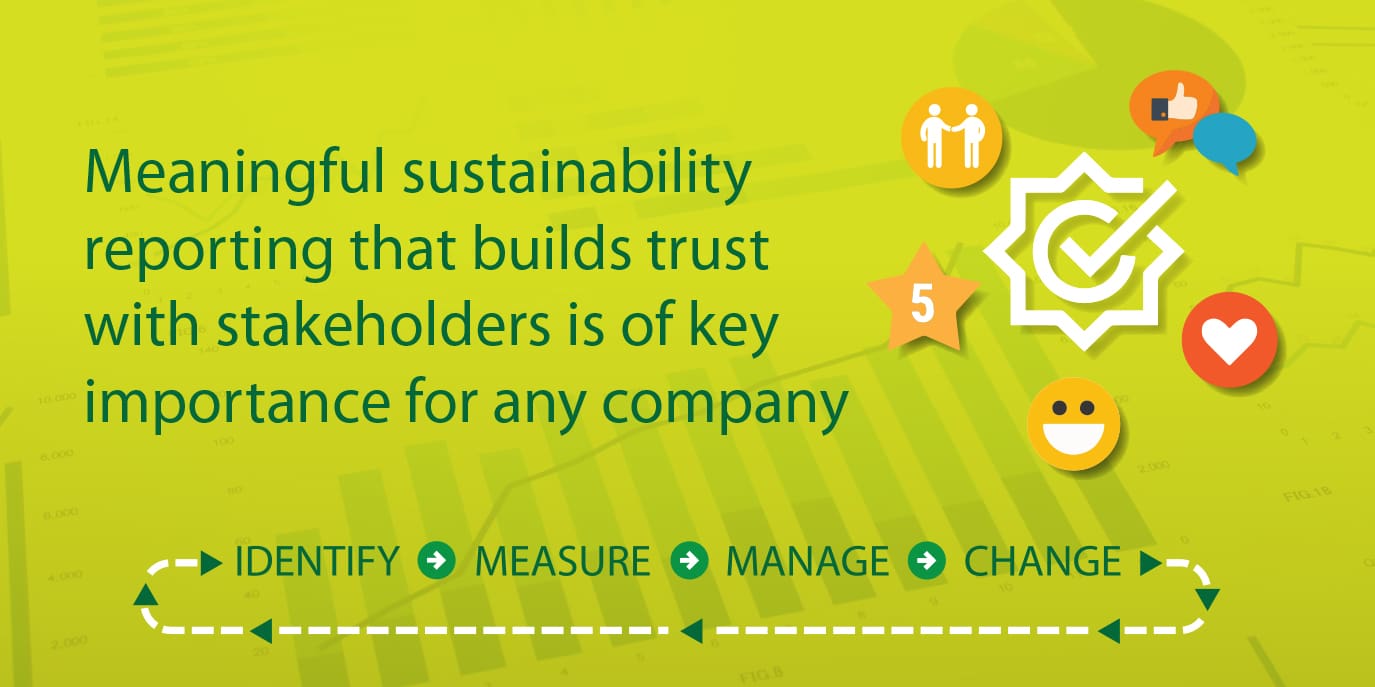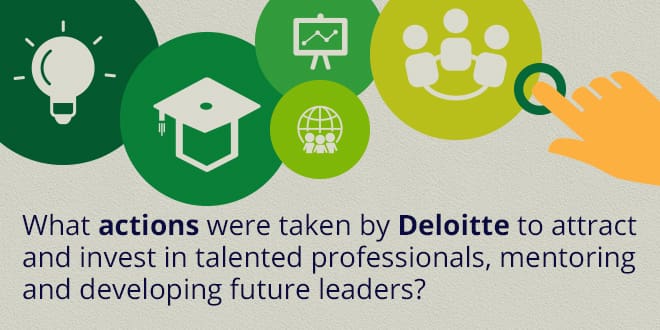
Change does not come through wishful thinking.
We propose that every company, regardless of size, sector and geographic location, begins a process of identifying its significant impacts (materiality) on the environment, economy and society and that it continues by measuring, managing and changing.
ESG/ Sustainability reporting done responsibly is about focused action on what matters, where it matters. Every company must concentrate on the impacts it uniquely has on the environment, economy and society. In addition, in the broader context of sustainability, every company must address UN’s Sustainable Development Goals (SDGs).
The Global Reporting Initiative (GRI), the UN Global Compact, and the WBCSD have clearly identified that “Our planet faces massive economic, social and environmental challenges”. 17 Sustainable Development Goals (SDGs) have been defined which Governments worldwide have already agreed to. They explicitly call on all businesses to apply their creativity and innovation to solve sustainable development challenges. GRI and the UN Global Compact have joined forces and are enabling measuring and reporting on the SDGs.
The rewards of ESG/Sustainability reporting done responsibly
The rewards from conducting ESG / Sustainability reporting through a structured, methodical approach are too many to ignore. Keeping our world safe by battling climate change is arguably the most important reason for taking action. In an economic sense, research by well-recognized institutions is clearly proving that responsible companies can look to the future with optimism. I am also convinced that in our ever connected and transparent world, responsible ESG/Sustainability reporting forms the foundation for good communication, which is ever more important in the digital age we live in.
My personal aim is to discover ways and simplify processes even further so that each and every company, large and small can, with as few resources as possible, fulfill its objectives through responsible ESG / Sustainability reporting. My target is to enable companies, through responsible reporting, to be proactive, foresee risks and take action before situations spiral out of control but also to identify and take advantage of the many opportunities: to have their radars switched on.
Also read: FBRH Consultants UK: campaign to support the launch of a GRI education sector standard
Our aim: Mobilising 235 million university students to start understanding significant impacts
All the material on SustainCase is prepared by the FBRH team and chosen to demonstrate how today’s best-run companies are achieving economic, social and environmental success – and give you insights to their success.
I invite you to take action. It is no coincidence that 73% of the largest 250 companies in the world report with the use of the Global Reporting Initiative (GRI) Standards. Identify your most important impacts, measure, manage, and change and become, with your positive contribution, part of a positive chain reaction that is changing our world.
Simon Pitsillides
Editor
SustainCase
Sustainability Reporting and Marketing Communication Strategy Expert. Simon is a Fellow of the Institute of Environmental Management and Assessment (FIEMA), a Fellow of the Chartered Institute of Marketing, a member of the Chartered Institute of Journalism (CIoJ), a Chartered Marketer, and holds an MBA in Marketing. He is a GRI and IEMA Trainer, the publisher of www.sustaincase.com and owner of www.fbrh.co.uk. Simon teaches the FBRH GRI Standards Certified, CPD and IEMA Approved Course (venue: London School of Economics (LSE).









